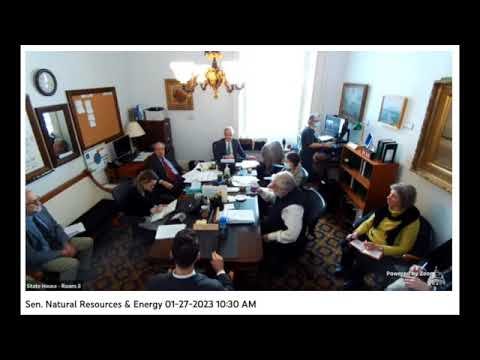CLF is gearing up to sue Vermont over Global Warming Solutions Act
Senators appear to be encouraging this – at taxpayer expense.
The last question for Chad Whiting of the Conservation Law Foundation during his testimony in support of the Clean Heat Standard bill (S.5) now before the Senate Natural Resources & Energy committee came from Senator Mark MacDonald (D-Orange). “Are you busy with steps for a possible lawsuit that we will need [emphasis in original] in the event that we f…
Keep reading with a 7-day free trial
Subscribe to Behind the Lines: Rob Roper on Vermont Politics to keep reading this post and get 7 days of free access to the full post archives.



